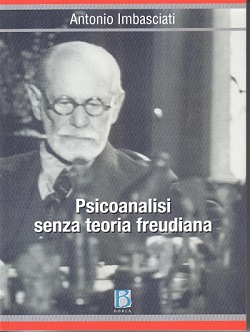
Psychoanalysis without Freud’s theory
Psychoanalysis changed since Freud’s time. Nowadays psychoanalysts work in a very different way from hundred years ago. A big development happened in clinical practice, but theory was disregarded. As a consequence, people who don’t work in the psychoanalytic field cannot know the theories which are implicit in clinical practice and hold on to the only knowledge that Freud outlined. In his Metapsychology the Master pointed out his energy-drive explication of the functioning of the mind: it was syntonic with the sciences of his time, it was easy to understand and became popular, as the specific schematic pcture of psychoanalysis. The Psychoanalytical Organizations (IPA) carefully attended to the clinical training of their members, but they did not promote the explicitation of new theories. Mostly, they did not promote a formulation of a theory that could be understood by everyone and characterized psychoanalysis, like Freud had been able to do for his time. As a consequence, we still find a popular picture of psychoanalysis which is obsolete and open to criticism, as it is not yet syntonic with what people may know about science. Today this bad image damages the whole field of psychoanalysis, despite its progress.
In this book the Author comments on papers that were presented in an international congress which was intitled “Psychoanalysis wthout Freudian Theory”. His conclusions consider seven points:
1) Nowadays psichoanalysis is not yet consistent with Freud’s energy-drive theory about mental functioning and no new comparable or omologue theory was explicitated.
2) The word “theory” is used by psichoanalysts without differentiating its many different acceptions, in particular without specifying if “theory” indicates the whole psychoanalysis conceptual body rather than a theory which hypotizes the general functioning of the human mind. Such a confusion leads to conceal what may characterize psychoanalysis today.
4) Adequate epistmological criteria are lacking and there is a confusion between “theories” and “discoveries”, clinical concepts and theoretical inventions.
5) A consilience with neuroscience is very lacking,
6) We need a new general theory of the functionig of the mind, wich may characterize nowadays psychoanalysis: it has to be “enucleated” from clinical practice.
7) We need a new metapsychology.
Freud was the genious inventor of a method which founded a new science: every science can’t be alive without change and progress.
